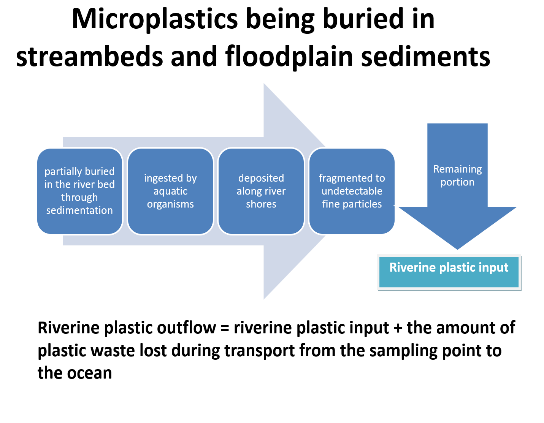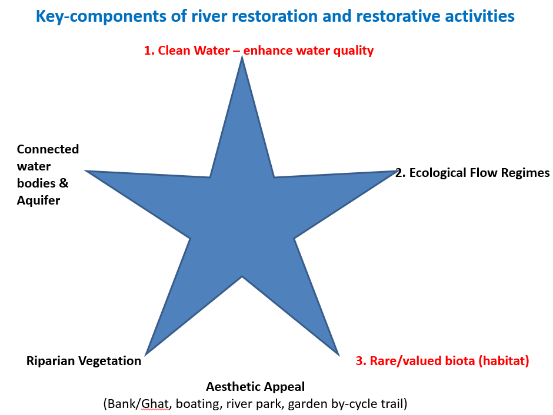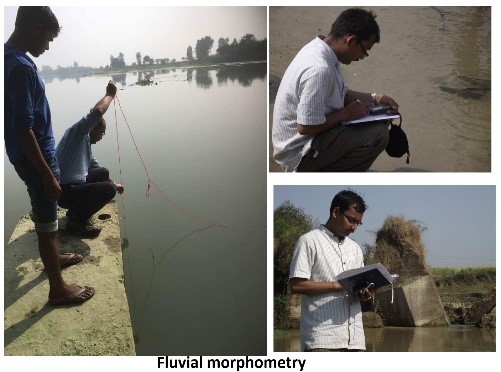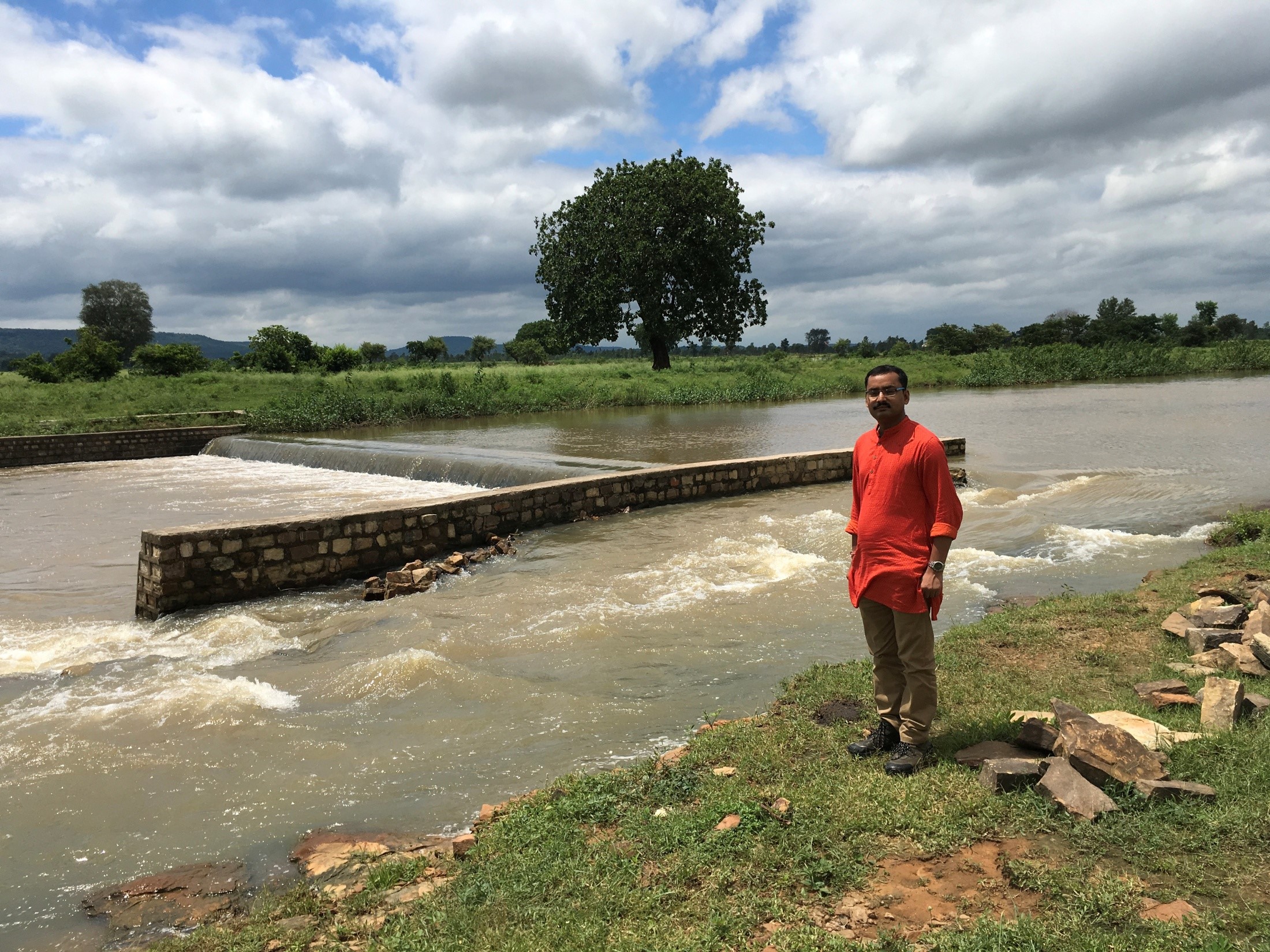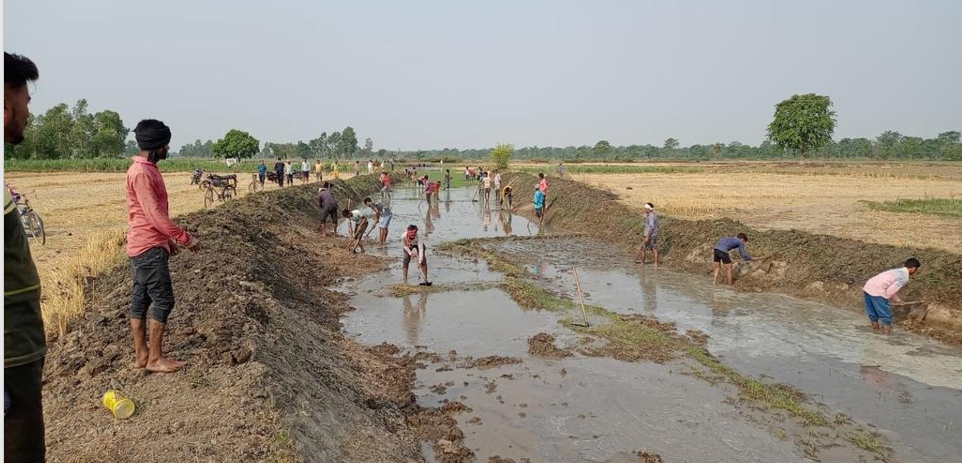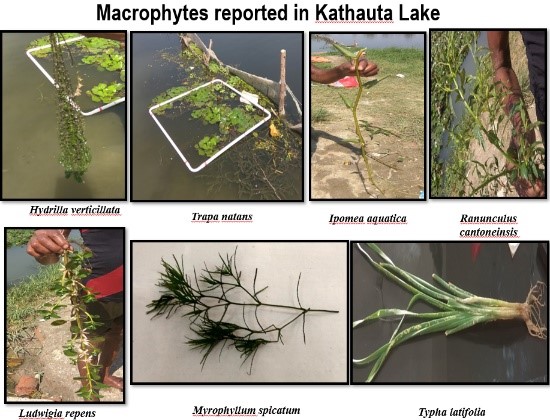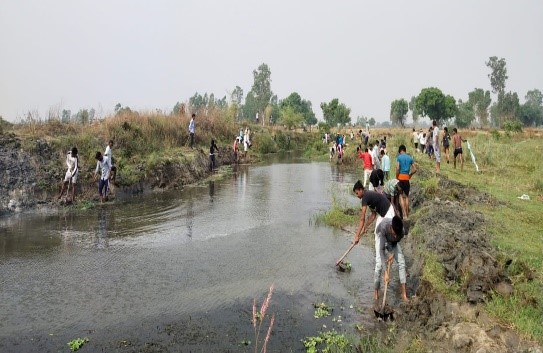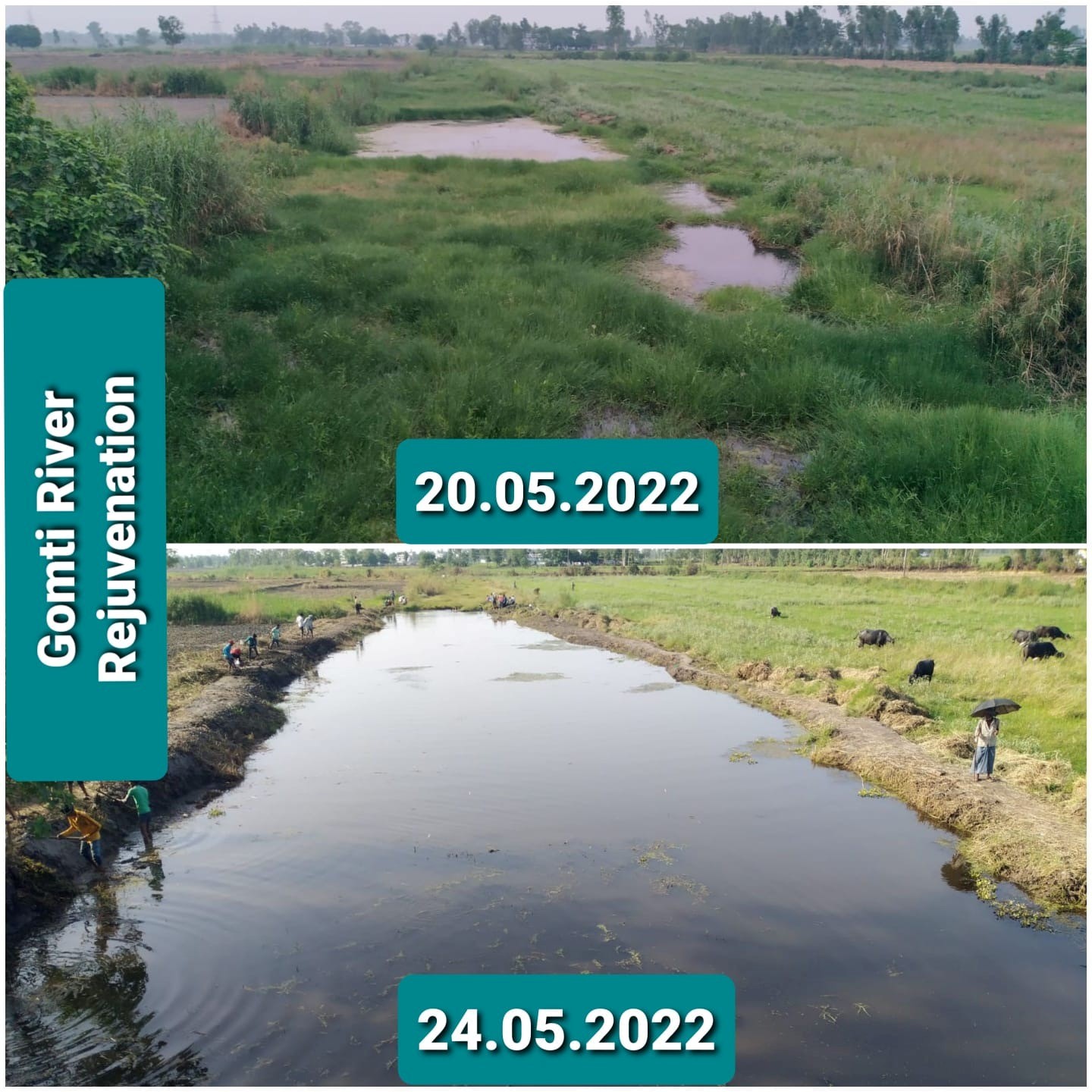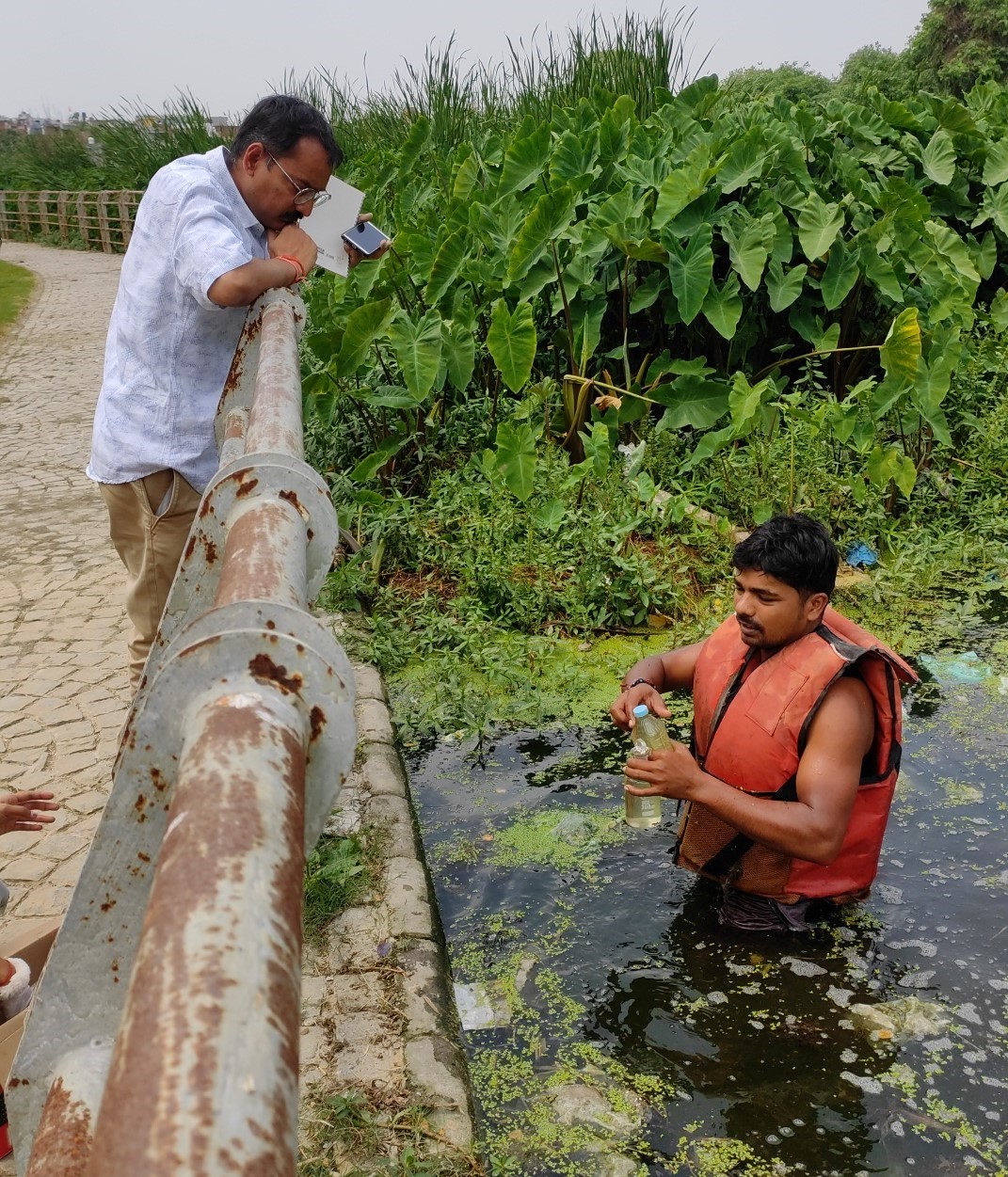WORLD ENVIRONMENT DAY CELEBRATION 2023
WORLD ENVIRONMENT DAY CELEBRATION AT CSIR
International Society of Environmental Botanists (ISEB) in collaboration with CSIR-National Botanical Research Institute, Lucknow celebrated World Environment Day on 5th June, 2023. Dr. P.V. Sane, Former Director CSIR-NBRI and Advisor ISEB executive was the Chief Guest, whereas, Prof. Venkatesh Dutta, from School of Earth and Environmental Sciences, Baba Saheb Bhimrao Ambedkar University, Lucknow, delivered the World Environment Day lecture.
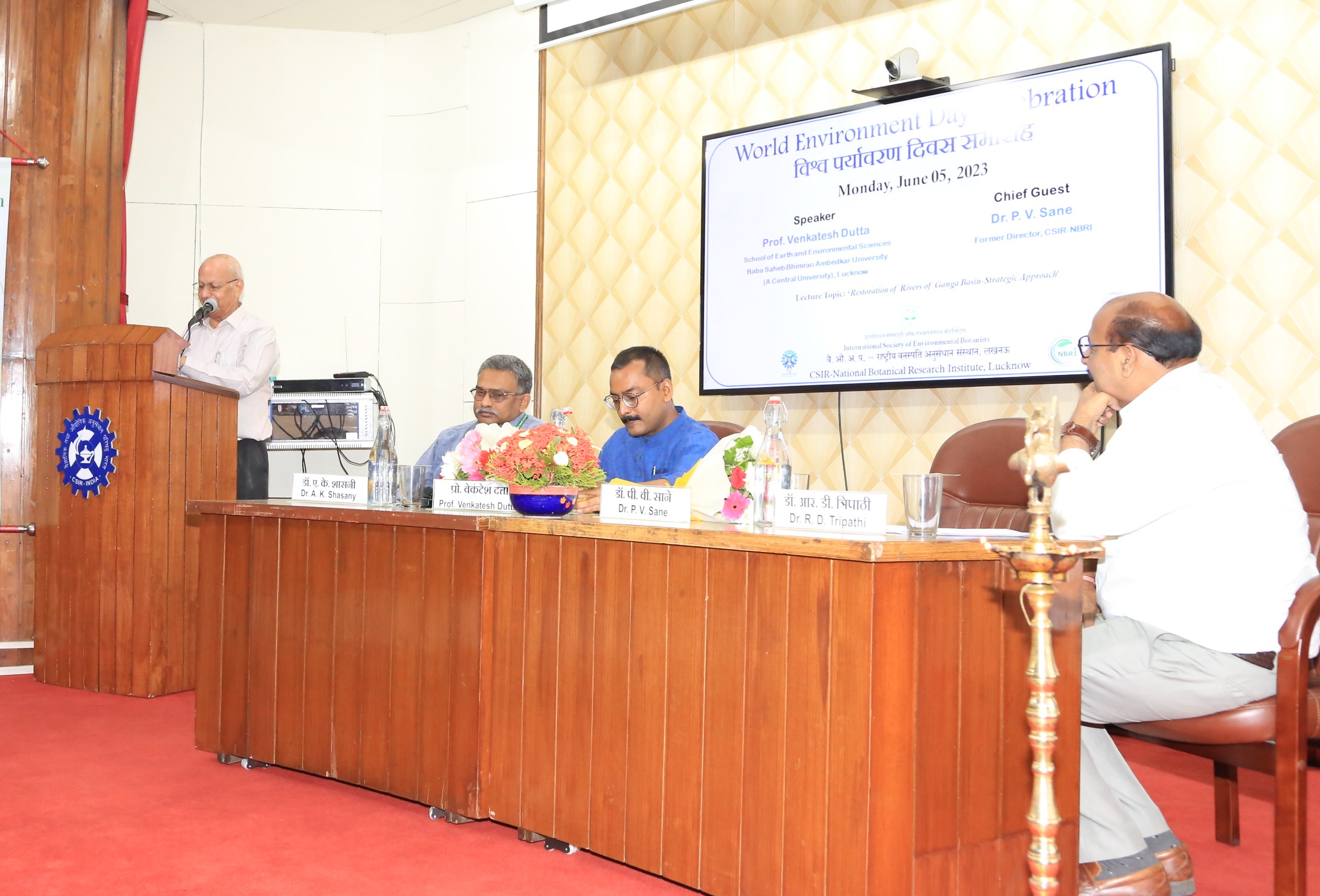
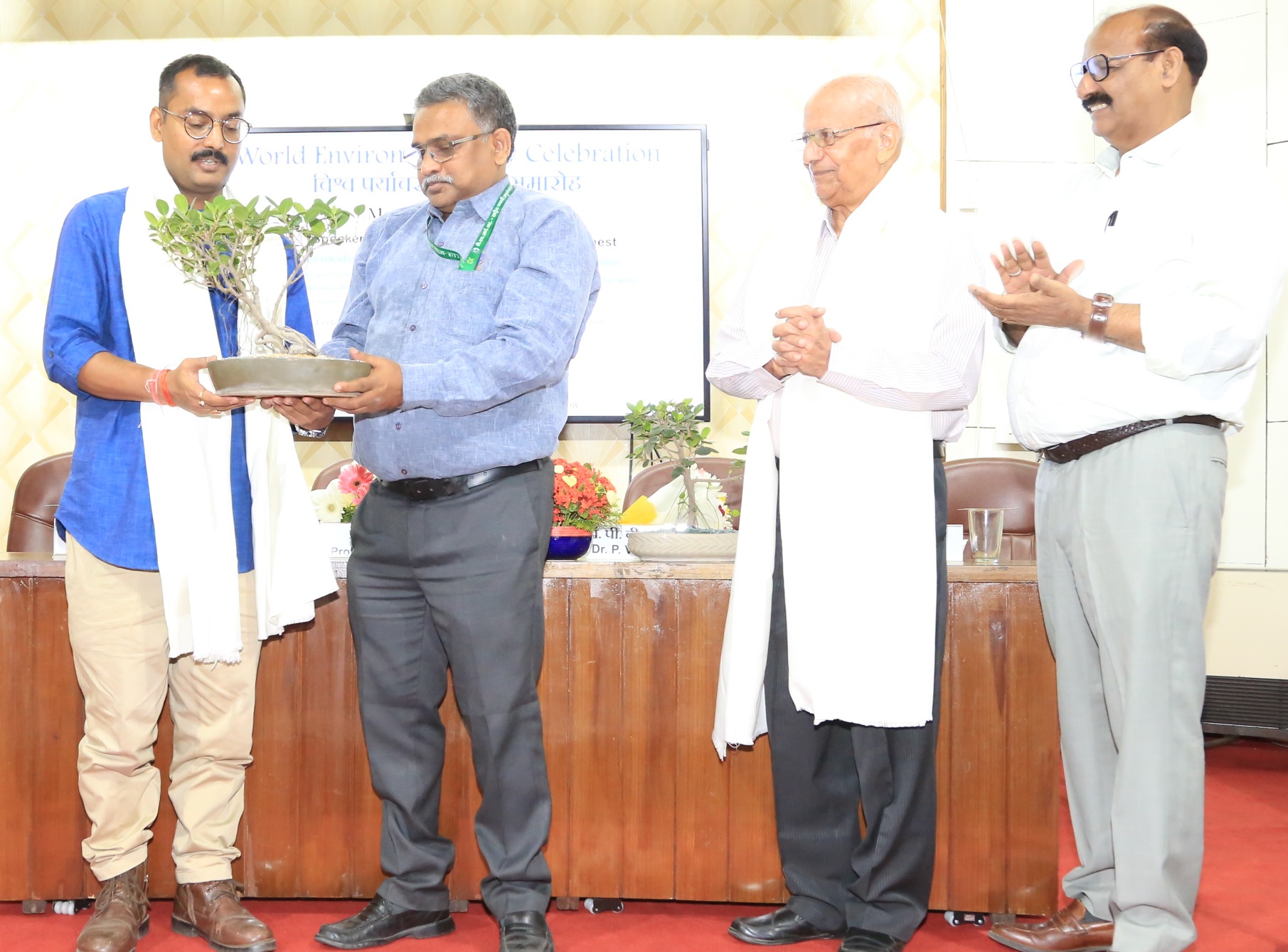
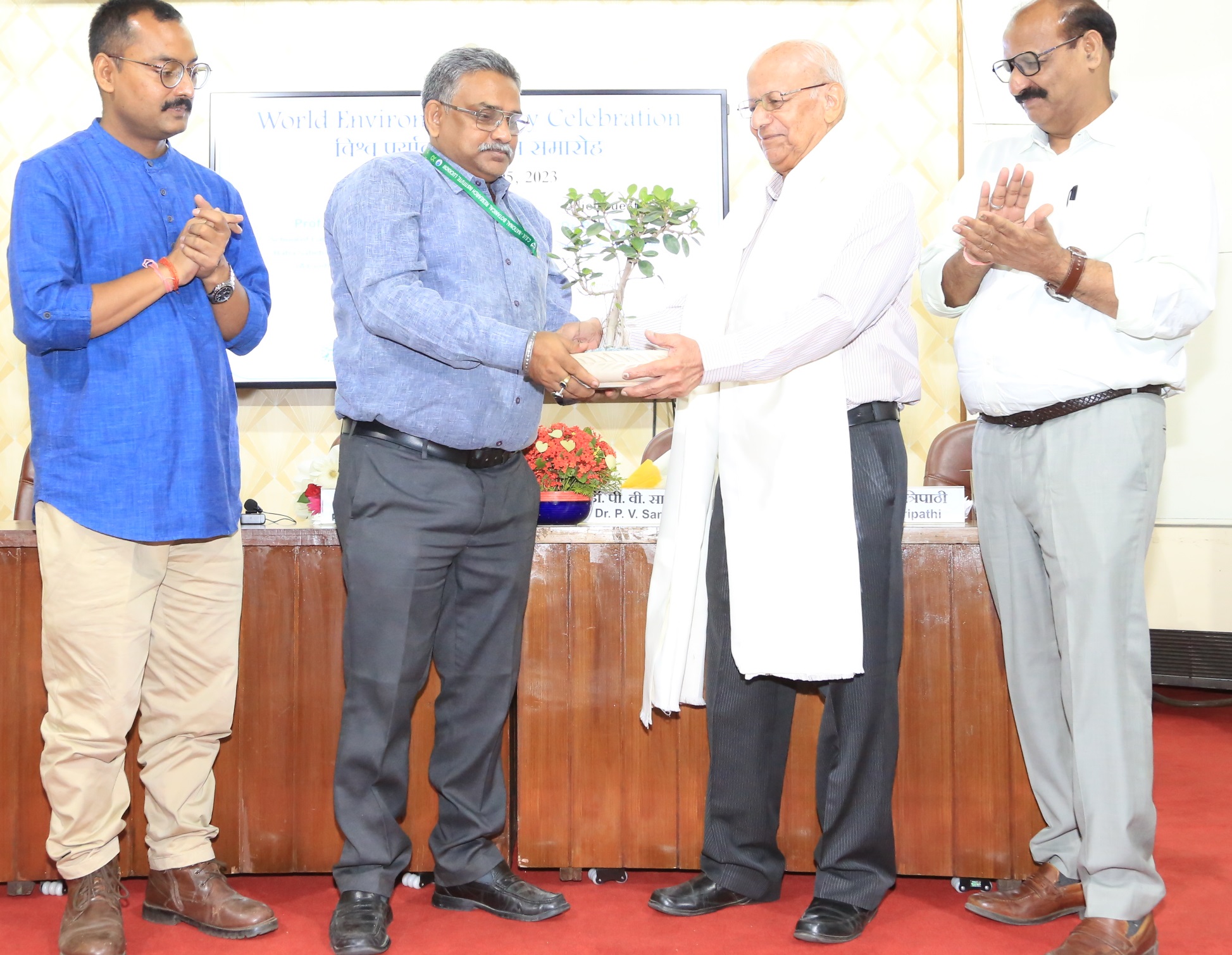
While welcoming the Chief Guest, Speaker of the Day and the august audience, Dr. A.K. Shasany, Director, CSIR-NBRI, highlighted the need of ‘Beat Plastic Pollution’ which is the current year’s theme for the World Environment Day. He emphasised how plastic pollution effects the biodiversity, human health and even climate. His main attention was towards the leak of plastic into aquatic ecosystems. This has devasting effects on a wide range of organisms in our seas, rivers and on land. A lot of birds and fish have plastic particles in their stomach. Besides this there is crisis of oxygen and light due to plastic in water system. He also mentioned that microplastic can accumulate in the soil due to their use in agricultural products. He showed his concern that plastic use was a big challenge but the time has come when we must take it seriously. He stressed that beside looking at Science and technology to solve the environmental problem we should also change our lifestyle and habit.
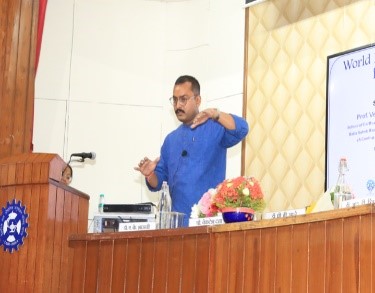
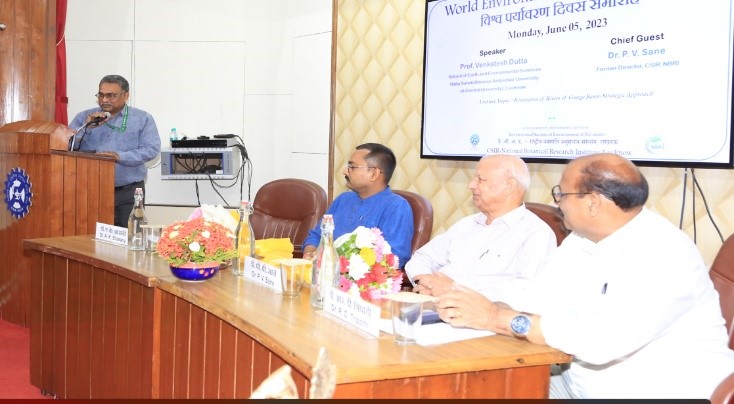
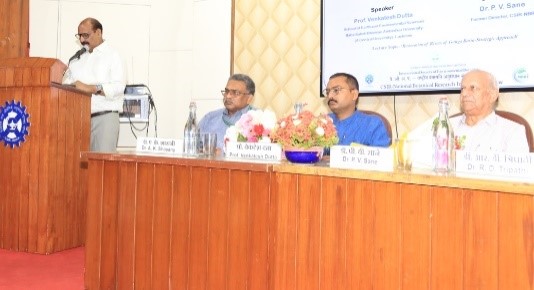
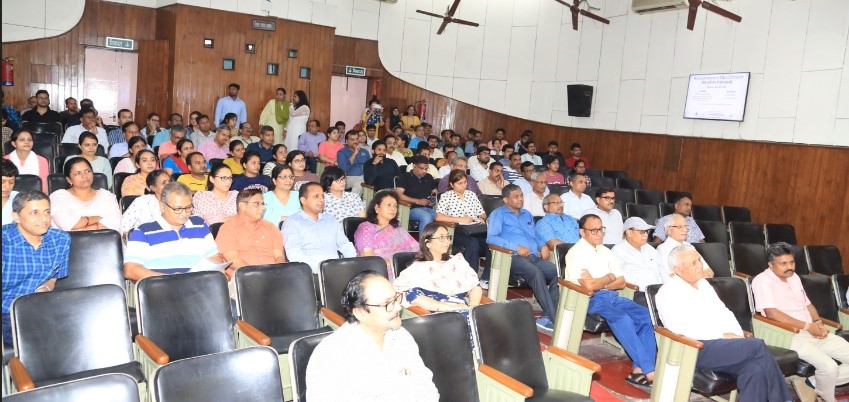
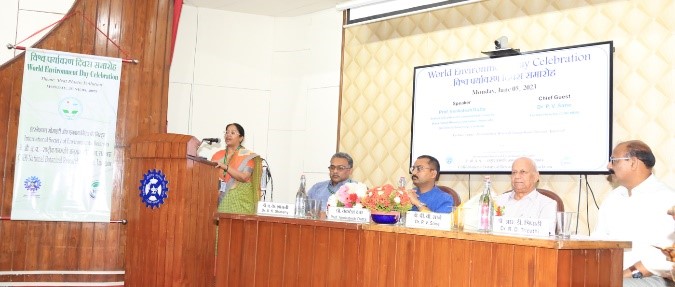
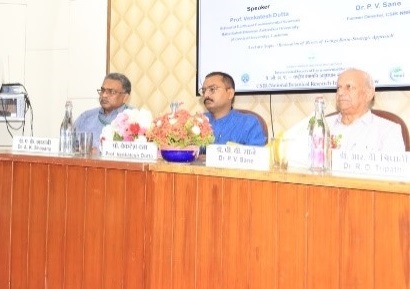
Following Dr. Shasany’s welcome address, ISEB Secretary, Dr. R.D. Tripathi, briefed the audience about the genesis and activities of ISEB. He also introduced the Chief Guest, Dr. P.V. Sane and the guest speaker, Prof. Venkatesh Dutta.
Prof. Venkatesh Dutta, who is also known as the Water Man’ gave his lecture on “Restoration of rivers in the Ganga Basin: A Strategic Approach”. According to him the RIVER is not just water carrying channel, it is a living ecosystems – whose ecological integrity depends upon their physical, chemical and biological characteristics and interactions with their catchments. The river systems in India are facing several challenges such as increasing urbanization, water intensive agriculture, deforestation, invasive species, flow regulation, water extraction and sand mining. The India rivers are flooding and drying due to the change in their nature according to the season.
Therefore, before restoration of river it is important to understand the different flow types of each river. Many rivers are no longer perennial as the connectivity of groundwater with river is being broken by concrete structures. The loss of groundwater is leading towards the drying of our rivers. From his research experience Prof. Dutta stresses on phase-wise methodology through which the river can be restored. The first phase needs to be taken in three steps: (i) identification and marking of encroaching in two kilometer-buffer on both-sides of the river(s) on the drainage map using revenue/cadastral maps, (ii) identification of the critical stretch which needs immediate attention such as channel obstruction, channel fragmentation, etc., (iii) marking of origin points of a river/stream as well as confluence points in the respective districts for a special conservation zoning priorities. Later coming to the WED theme, he stressed that the plastic pollution is increasing in the water bodies. Around 80% of marine litter is made of plastic and micro-plastics. While some kinds of plastic do not decompose at all, others could take up to 450 years to break down. Due to their small size, microplastics have the potential to be ingested by a wide range of marine species; from microscopic zooplankton to large vertebrate predators. This is becoming a threat to our country.
The chief guest and former director of CSIR-NBRI, Dr. P.V. Sane also expressed his views on the actions being taken by the government of India to mitigate plastic across the country. He thanked the state Chief Secretary for a ban on single-use plastic.
A quiz competition on "Environmental Awareness" was conducted, were 22 CSIR-NBRI research scholars participated. The winners were - 1 st prize- Ms Ekta Gupta, 2 nd prize - Ms Pratibha Sharma and 3 rd prize- Mr. Akhilesh Kumar Maurya, Ms Sandhya Mishra and Ms Pooja Maurya. The certificate and prizes were distributed by the Dr. Sane, Prof. Dutta and Dr. Shasany. The Director CSIR-NBRI later facilitated the Chief Guest and Guest Speaker.
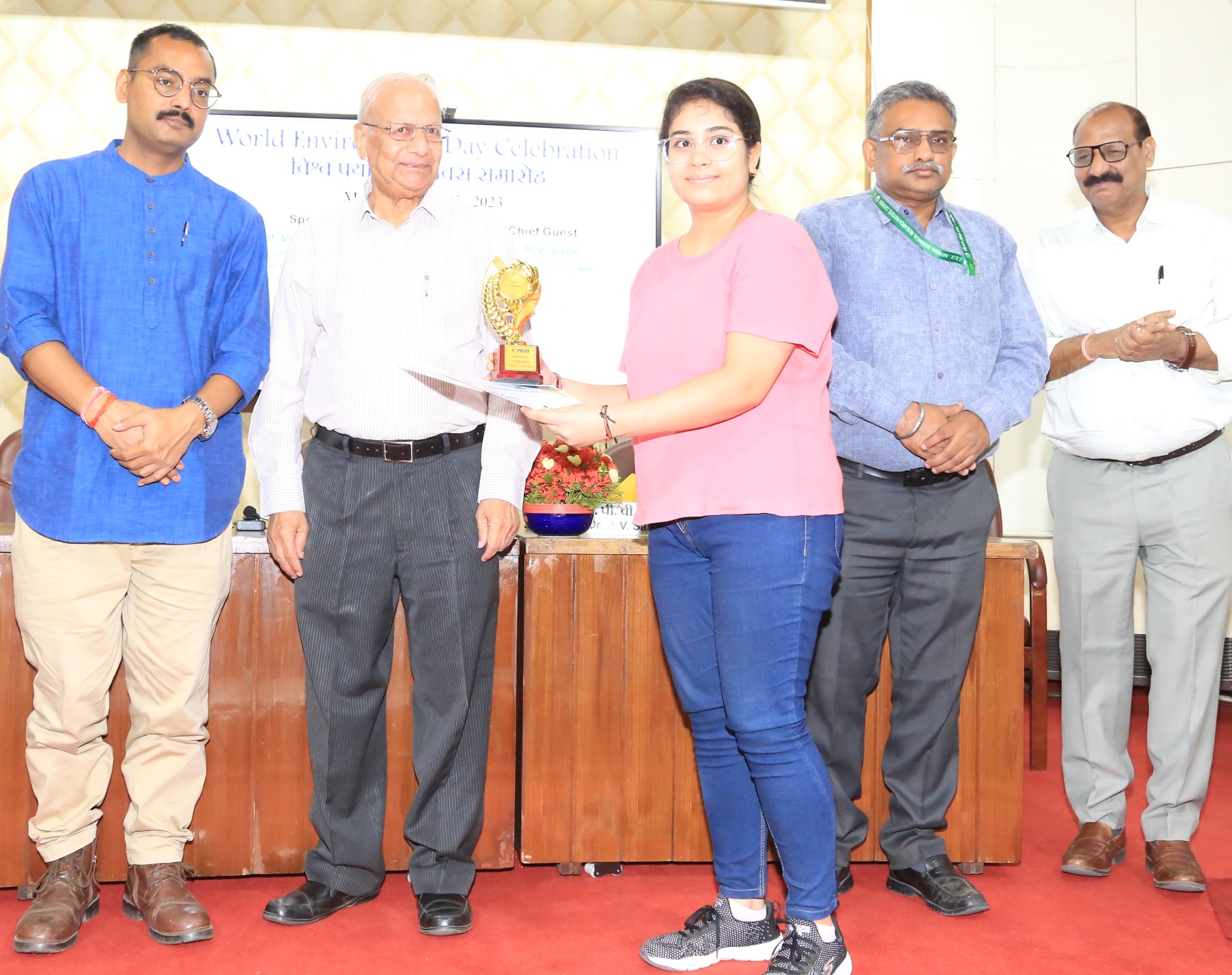
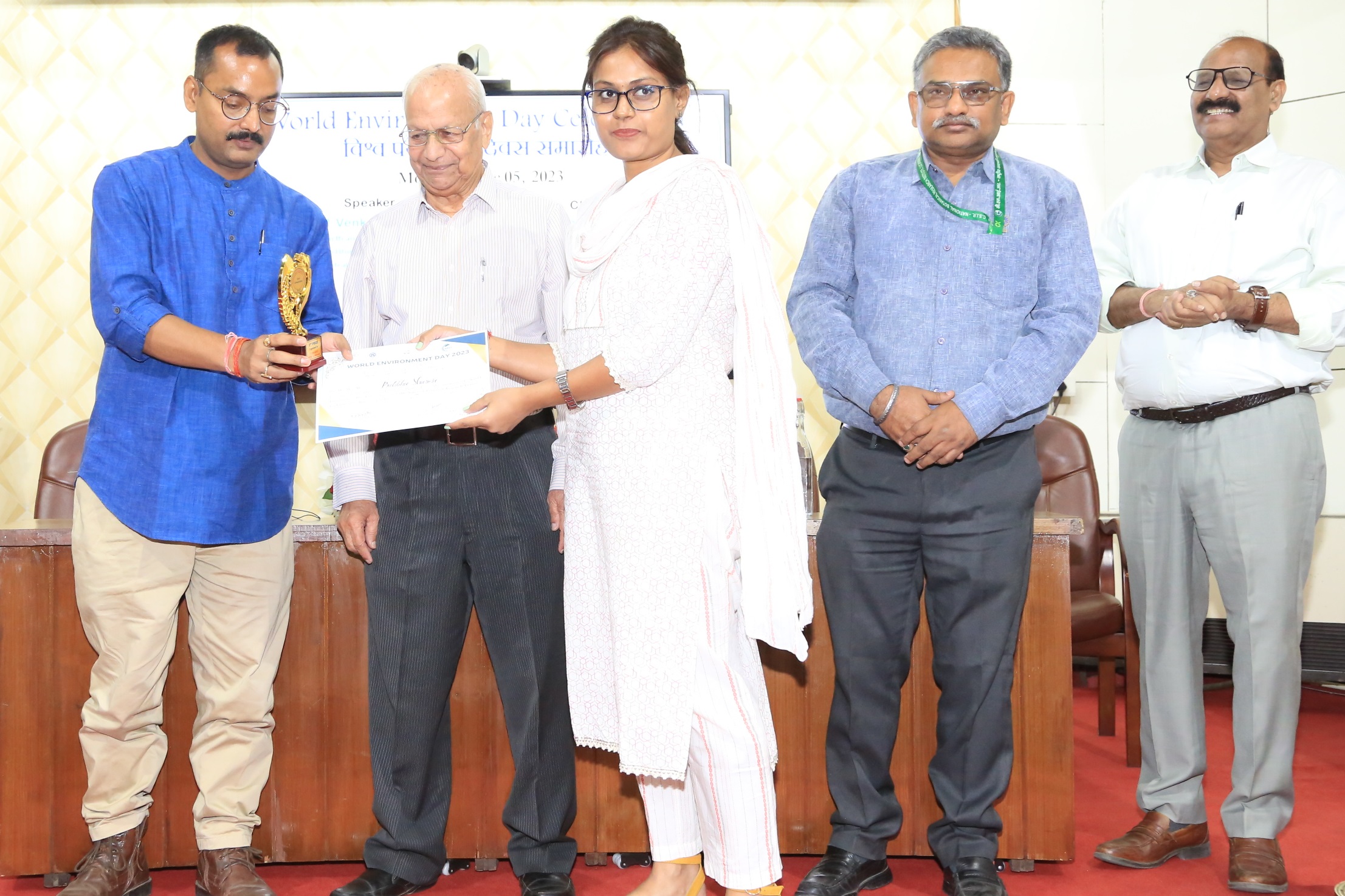
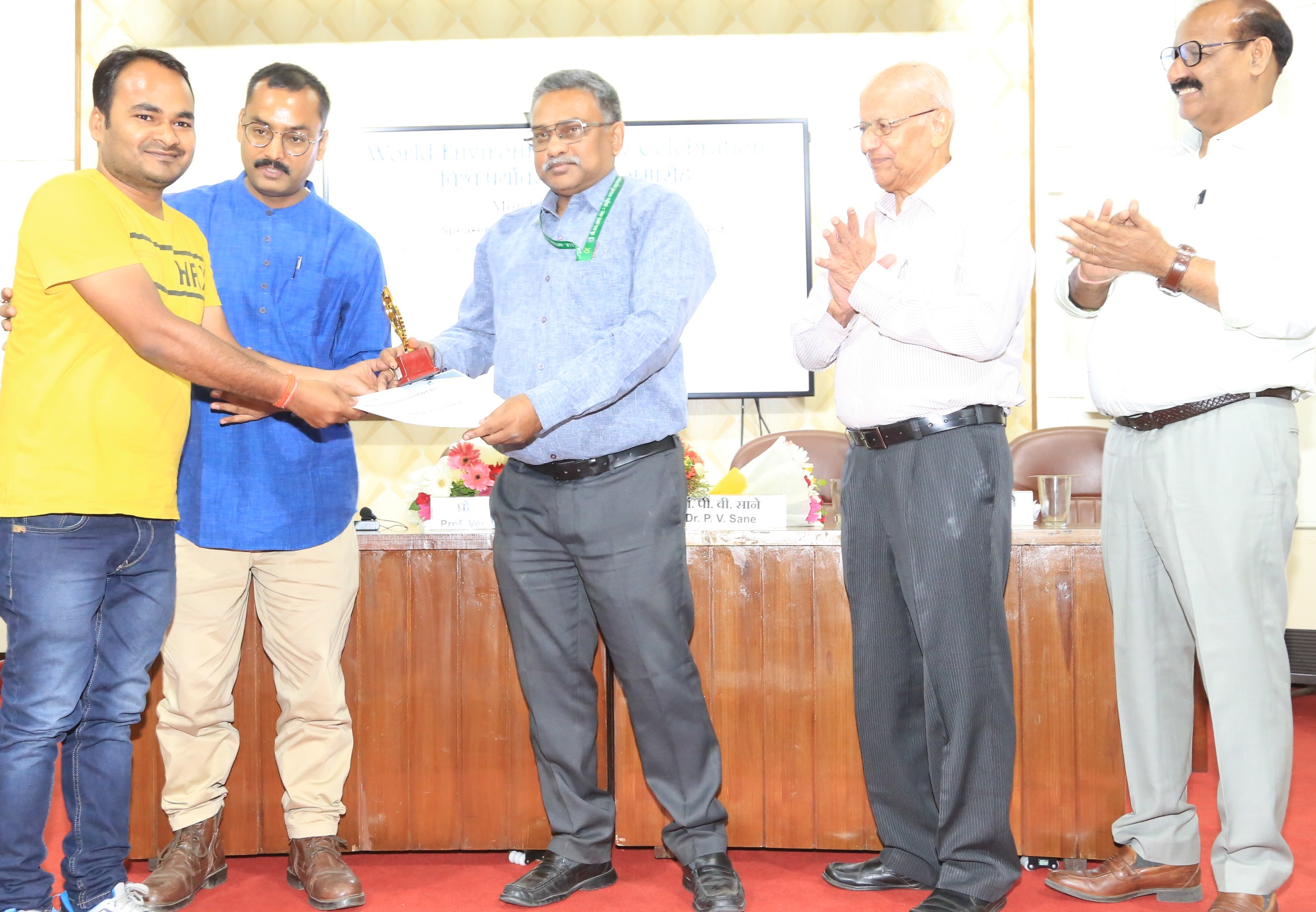
The World Environment Day Celebration was attended by more than 200 participants including students, scientists and technocrats.
Dr. Vivek Pandey, Head Plant Ecology & Climate Change Science Division and Joint Secretary ISEB, proposed a vote of thanks to the honorary members on the dais and the participants.
The chief guest and former director of CSIR-NBRI, Dr. P.V. Sane also expressed his views on the actions being taken by the government of India to mitigate plastic across the country. He thanked the state Chief Secretary for a ban on single-use plastic.
A quiz competition on "Environmental Awareness" was conducted, were 22 CSIR-NBRI research scholars participated. The winners were - 1 st prize- Ms Ekta Gupta, 2 nd prize - Ms Pratibha Sharma and 3 rd prize- Mr. Akhilesh Kumar Maurya, Ms Sandhya Mishra and Ms Pooja Maurya. The certificate and prizes were distributed by the Dr. Sane, Prof. Dutta and Dr. Shasany. The Director CSIR-NBRI later facilitated the Chief Guest and Guest Speaker.
The World Environment Day Celebration was attended by more than 200 participants including students, scientists and technocrats. Dr. Vivek Pandey, Head Plant Ecology & Climate Change Science Division and Joint Secretary ISEB, proposed a vote of thanks to the honorary members on the dais and the participants.
